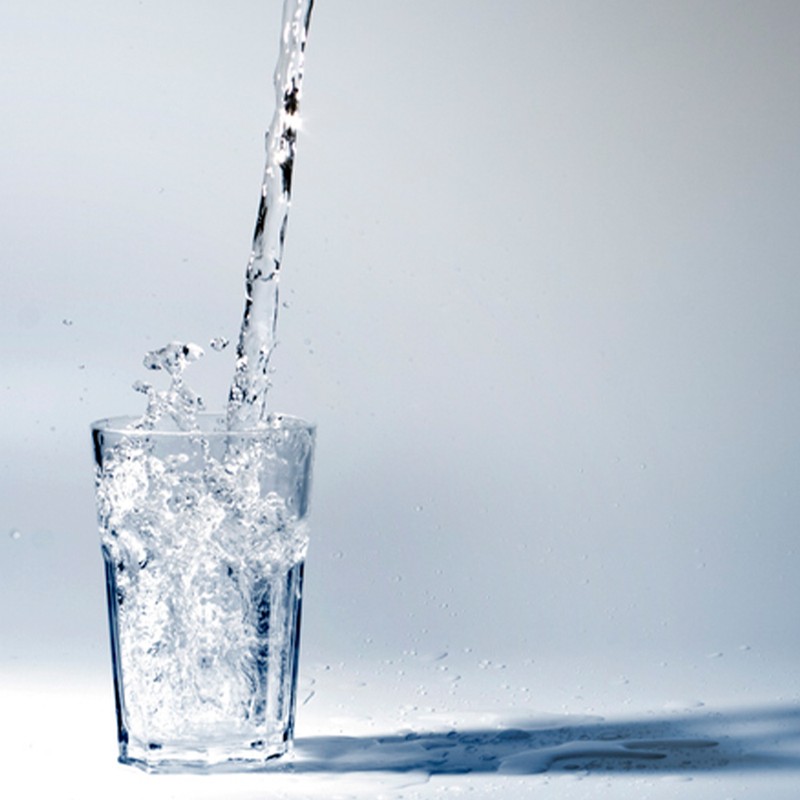11 Things To Know About Hydration
You Dehydrate While You Sleep
“During the night, you lose fluids in your sweat and breath. Every time you exhale, you lose a little bit of water and transpiration happens through the skin, too. Over the course of a night, both of these processes eliminate quite a bit of water, meaning it’s pretty likely you’re dehydrated when you wake up. Try to drink a large pint glass of water, around 500ml, on waking, to replace lost stores.” – David Birtwistle, movement and nutrition coach, and founder of Endeavour Life
Good Skin Isn’t All About Hydration
“The old adage that eight glasses of water will give you flawless skin is true – to an extent. Having clear skin is more than just drinking water. Try to eat a balanced diet packed with whole foods, lean proteins, monounsaturated fats (found in olive oil, avocados and certain nuts) and a variety of fruits and vegetables to keep the body, and skin, healthy. Conversely, sugar, trans fats and processed foods will do your skin no favours.” – David
The Scales Can Help
“When it comes to hydrating post-workout, aim for around one litre of additional water per hour of intense exercise. However, this varies for people of different sizes and sweat intensity, so try to drink to thirst and check the colour of your urine to be sure. Another great way to check your fluid levels is to jump on the scale before and after your workout: water has a density of 1kg per litre so if you ‘lose’ 1kg during your session, refuel with one litre of water.” – David
Sports Drinks Are Often Pointless
“For people who train up to an hour each day, a sports drink is unnecessary. If you are training for multiple hours per day consistently, like training for a marathon or rugby training, or anything lasting longer than 90 minutes, supplementing with electrolytes via a sports drink will replenish lost sodium and potassium.” – David
Look At Your Wee
“Your wee should be pale to light yellow. Clear or transparent is a sign you are over-hydrated. On the other hand, if you are going to the loo less than three times per day and have a dry mouth and eyes, you are definitely dehydrated.” – Rebecca Stevens, nutritionist
It’s Not All About Drinks
“Food can contribute up to 20% of your total fluid intake. The water molecule is found in virtually all foods. Fresh fruit and veg are great for helping with overall hydration; foods that have the highest water content include cucumber, melon, courgettes, tomatoes and celery.” – Nicola Moore, nutritional therapist
There’s More To Dehydration Than A Headache
“Symptoms of dehydration include constipation, possible skin issues (our skin contains around 30% water), and reductions in physical performance and cognitive ability. Research has suggested even mild dehydration can trigger headaches, fatigue, low mood and problems with concentration.” – Nicola
Caffeine Is Okay In Moderation
“Despite misconceptions, tea and coffee do count towards your daily quota. However, if you drink more than five coffees, this can have a negative effect on hydration levels as caffeine is a diuretic, meaning you’ll need to wee more frequently and therefore lose additional fluid.” – Rebecca
Over-Hydration Is A Thing
“It is possible to over-consume fluids. The medical term is hyponatremia, which is caused by excess water diluting electrolytes in the blood, particularly sodium. Cells within the body respond to this decrease in sodium by shifting fluids from the outside to the inside of the cells, which causes them to swell. If this happens in your brain, it can be dangerous and life threatening. However, the condition is rare – you’d need to drink in excess of five litres of fluid in a short space of time for this to happen.” – Rebecca
It’s Not All About Water
“There is evidence to suggest milk is more hydrating than water as it contains fat, protein and some naturally occurring sugar (lactose) that helps slow the emptying of fluid from the stomach, which will keep you hydrated over a longer period of time. However, water is still considered the healthiest option for hydration as it doesn’t contain any added sugar or energy.” – Rebecca
Think Little and Often
“In general, drinking little and often throughout the day is the best approach. Remember your body can only process one litre of fluid per hour – anything in excess of this figure will put unnecessary strain on the kidneys. Public Health England says men should drink around two litres of water per day.” – Rebecca
For more information or to book an appointment with Rebecca, visit NourishAndNurtureNutrition.com
DISCLAIMER: We endeavour to always credit the correct original source of every image we use. If you think a credit may be incorrect, please contact us at [email protected].


